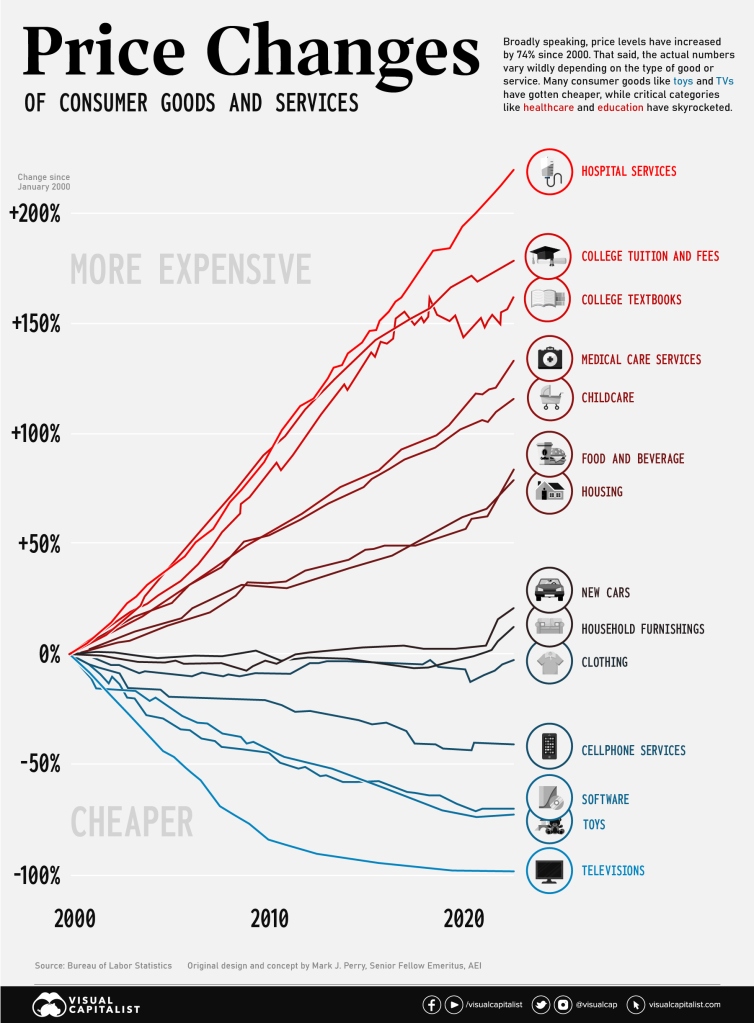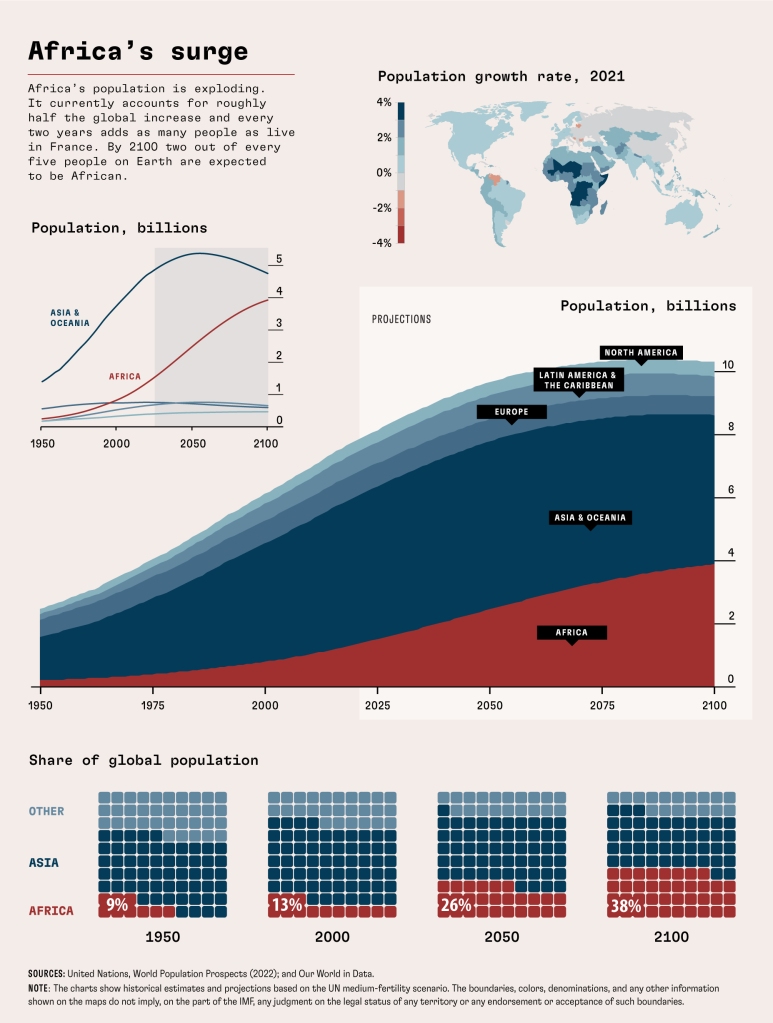Inflation can be (and is) a major instrument of global control. Market manipulation can affect real-world outcomes in countless ways through a domino effect of economics. In order to control the human population on earth, targeting essential goods and services should, unsurprisingly, be a priority. Human life’s existence is contingent to, and downstream of, the essential resources, amenities, and services available to it. Shocks to the global market in false flags and psyops like pandemics, conflicts, and other artificial upheavals can hugely disrupt a fragile market ecosystem.
The pandemics were hellbent on closing down businesses in absence of strong evidence. This closed down production and the flow of many goods causing supply chain disruption and longer term inflationary pressures that are felt until this day – spiking the prices of countless goods and services as demand was artificially stripped, causing a consequential decline in supply due to businesses going bankrupt.
The inscriptions dealt with four main themes: “governance and the establishment of a world government, population and reproduction control, the environment and humankind’s relationship to nature, and spirituality.” The inscription read: Maintain humanity under 500,000,000 in perpetual balance with nature.
The Georgia Guidestones inscriptions, Wikipedia
The inscription reads:
- Maintain humanity under 500,000,000 in perpetual balance with nature.
- Guide reproduction wisely – improving fitness and diversity.
- Unite humanity with a living new language.
- Rule passion – faith – tradition – and all things with tempered reason.
- Protect people and nations with fair laws and just courts.
- Let all nations rule internally resolving external disputes in a world court.
- Avoid petty laws and useless officials.
- Balance personal rights with social duties.
- Prize truth – beauty – love – seeking harmony with the infinite.
- Be not a cancer on the Earth – Leave room for nature – Leave room for nature.
Note: On July 6, 2022, an explosive device was detonated at the Guidestones’ site, destroying the Swahili/Hindi language slab and causing significant damage to the capstone. Nearby residents reportedly heard and felt explosions at around 4:00 a.m. Both the Elberton Granite Association and the Elberton city council expressed doubt that the guidestones would be rebuilt, but expressed hope that one day it could happen.
Inflation affecting essential goods and services more than nonessential consumer goods and services

The carbon tax and pressures imposed onto governments and megacorporations has stoked worldwide inflation – if companies must reduce their carbon footprint under duress, they, and their suppliers, will have to adjust leading to raising prices on end products and services.
Read: The Green Agenda and the Plan to Collapse the Industrial World Economy
Because financial investors on Wall Street and London saw the benefit of huge profits from the Green energy agenda, working with the Davos World Economic Forum (WEF) to promote the laughable ESG investing model, conventional oil, gas and coal companies are not investing profits in expanded production. In 2020 worldwide spending on oil, gas, coal dropped by an estimated $1 trillion. That is not coming back. With BlackRock and other investors all but boycotting ExxonMobil and other energy companies in favor of “sustainable” energy, the knock-on effects on global inflation are dire.
A fundamental aggravating cause for the recent shortages of abundant coal, gas and oil is the decision by BlackRock and other global money trusts to force investment away from oil, gas or coal—all perfectly safe and necessary energy sources—to buildup of grossly inefficient and unreliable solar or wind. They call it ESG investing. It is the latest rage on Wall Street and other world financial markets ever since BlackRock CEO Larry Fink joined the Board of the Klaus Schwab World Economic Forum in 2019. They set up front ESG certifying companies that award ESG “politically correct” ratings on stock companies, and punishing those who do not comply. The rush into ESG investing has made billions for Wall Street and friends. It has also put the brakes on future development of oil, coal or natural gas for most of the world.
This is not by mistake.
If the EU continues with the suicidal “Green” agenda, it will find itself in a deindustrialized wasteland in a few short years. The problem is not gas, coal or nuclear. It is the inefficient Green Energy from solar and wind that will never be able to offer stable, reliable power.
The Green Energy Agenda of the EU, US and other governments along with the Davos-promoted ESG investing will only guarantee that as we go forward there will be even less gas or coal or nuclear to fall back on when the wind stops, there is a drought in hydroelectric dams or lack of sunshine.
It doesn’t take a rocket scientist to realize this is a road to economic destruction. But that’s in fact the goal of the UN 2030 “sustainable” energy or the Davos Great Reset: population reduction on a massive scale. We humans are the frogs being slowly boiled. And now the Powers That Be are really turning the heat up.
If you are clean and green, you potentially get investment.
If you are deemed a carbon polluter as the oil, gas and coal industries are deemed today, the global capital flows will disinvest or avoid funding you.
The immediate target of this financial cabal is the backbone of the world economy, the oil and gas industry along with coal. [It has also geopolitical and strategic implications].
Just take a look at the dramatic news in France to see the effects of the “Green” policies, French farmers are rioting. England is seeing the same thing, Germany too with protests over plans to end agricultural fuel subsidies, and the whole of Europe and beyond.
Essential goods essential to human life and human thriving are hit hardest
Is it a coincidence (see above chart) that various distracting and nonessential goods and services, such as toys, cellphones, televisions and software are defying global inflation trends? These are invariably tools of mass distraction and mass propaganda, ensuring these items are in every household offers a certain usefulness in the global elite disruptors’ arsenal.
Recently in the USA, eggs have experienced an incredibly high rate of inflation (60%). Eggs represent an essential highly nutritious ingredient for numerous other food items, presenting knock-on effects in prices of other goods that contain it.
What apparently caused the spike? A disease — commonly known as bird flu, which is highly contagious and lethal among birds. It killed tens of millions of egg-laying hens, leading to an egg shortage.
“It’s a supply disruption, ‘act of God’ type stuff,”
Brian Moscogiuri, a global trade strategist at Eggs Unlimited
An act of God could be a called a “miracle”, that’s something not very likely to happen by pure chance – which calls the situation into some suspicion. So, act of God? Or deliberate act?
Hydrocarbons Under Attack
The immediate target of this financial cartel is the backbone of the world economy, the oil, coal and natural gas sector. Oil industry analysts predict that over the next five years or less investment flows into the world’s largest energy sector will fall dramatically. “Given how central the energy transition will be to every company’s growth prospects, we are asking companies to disclose a plan for how their business model will be compatible with a net zero economy,” BlackRock’s chairman and CEO Larry Fink wrote in his 2021 letter to CEOs.
Blackrock is the world’s largest investment group with over $7 trillion to invest. Another BlackRock officer told a recent energy conference:
“where BlackRock goes, others will follow.”
As a new Biden Administration pushes their ideological opposition to so-called fossil fuels, the world will see a precipitous decline in oil and gas investment. The role of the Davos globalists and the ESG financial players are out to guarantee that.
And the losers will be us.
Energy prices will skyrocket as they did during the recent Texas blizzards. The cost of electricity in industrial countries will become prohibitive for manufacturing industry. But rest well. This is all part of the ongoing Great Reset and its new doctrine of ESG investing.
At the end of this road, there won’t be any sufficient green replacements as suggested and promised. Prices will have gone up and less human life will reside on the face of the Earth.
In 2010 the head of Working Group 3 of the UN Intergovernmental Panel on Climate Change, Dr Otmar Edenhofer, told an interviewer, “…one must say clearly that we redistribute de facto the world’s wealth by climate policy. One has to free oneself from the illusion that international climate policy is environmental policy. This has almost nothing to do with environmental policy anymore…” The WEF Great Reset is not simply a big idea of Klaus Schwab reflecting on the economic devastation of the coronavirus. It has been long planned by the money masters.
Essential (animal product based) vitamins for fertility targeted by the “Green” (depopulation) agenda:
There are some essential vitamins found only in animal products, some of these are essential to reproductive health. Vitamin A (Retinol), B12, Carnitine, Iodine, Carnosine, Creatine, D3, DHA, EPA, Heme Iron, and Taurine.
Below see vitamins that are only really found in animal products that are also essential for human reproductive health:
- Iodine is an essential mineral, though few food sources are rich in it. The foods highest in iodine include seaweed, dairy, tuna, shrimp and eggs – so animal products on the whole. It was found that iodine deficient women took on average one month longer to conceive than the women who were iodine sufficient. Not only this, but the iodine deficient women were significantly less likely to have gotten pregnant after trying for at least 13 months. In particular, iodine is taken up avidly by the ovary and endometrium. Iodine deficiency is associated with reduced fertility.
- Carnitine (Acetyl L-Carnitine) is quite important for fertility and only found in meat and animal products, which the WEF green agenda is targeting. L-carnitine also seems to play a role in sperm health. Oral LC and ALC supplements have been shown to improve sperm motility. And adding LC to sperm before it is frozen for later use in fertility treatments seemed to improve the sperm’s vitality and motility. Carnitine is only really present in animal products, especially red meat. Poultry, fish, and dairy foods also provide some carnitine.
- Vitamin D – this is essential for fertility, and guess what? The best food sources of vitamin D are animal products: Oily fish, including salmon, mackerel, and sardines. Other sources include egg yolks, red meat, and liver. Once again, items demonised by the green agenda. Women with better vitamin D levels in the pre-conceptual period have reduced risk of miscarriage and better rates of conception during IVF.
- Iron – This vitamin is important to fertility and can be found in plant-based sources, but meat and animal products are, once again, the best and most plentiful source, in particular liver and organ meats. Research has linked iron deficiency to ovulatory infertility.
- Zinc – The richest food sources of zinc include meat, fish, and seafood. Oysters contain more zinc per serving than any other food, but beef contributes 20% of zinc intakes from food in the United States because it is commonly consumed. Eggs and dairy products also contain zinc. Zinc is a critical component in a number of conserved processes that regulate female germ cell growth, fertility, and pregnancy. Zinc is also an essential mineral for sperm formation.


